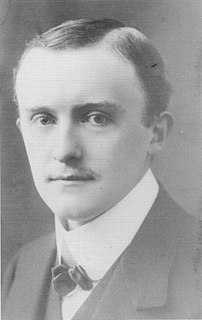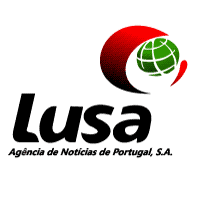| Look up Disa in Wiktionary, the free dictionary. |
Disa is a heroine of Swedish mythology.
Contents
Disa or DISA may also refer to:
| Look up Disa in Wiktionary, the free dictionary. |
Disa is a heroine of Swedish mythology.
Disa or DISA may also refer to:
Disa Records is a privately owned record label based in San Nicolas de los Garza, Nuevo León, Mexico. Specializing in Spanish language recordings, the company's works are distributed in the United States by Universal Music Group.

Jørgen Skafte Rasmussen was a Danish engineer and industrialist.
DISA is a company founded in Denmark which since 1900 has produced metal casting products.
The Data Interchange Standards Association (DISA) was the organization that supported various other organizations, for the most part, responsible for the development of cross-industry electronic business interchange standards.

The Defense Information Systems Agency (DISA), known as the Defense Communications Agency (DCA) until 1991, is a United States Department of Defense (DoD) combat support agency composed of military, federal civilians, and contractors. DISA provides information technology (IT) and communications support to the President, Vice President, Secretary of Defense, the military services, the combatant commands, and any individual or system contributing to the defense of the United States.
1319 Disa, provisional designation 1934 FO, is a carbonaceous asteroid from the outer region of the asteroid belt, approximately 25 kilometers in diameter. It was discovered on 19 March 1934, by English-born, South African astronomer Cyril Jackson at Johannesburg Observatory in South Africa. It is named for the orchid Disa.
Disa is a minor Bongo–Bagirmi language of Chad.
Disa is a female given name. It may be a short form of Hjördis and other names ending in -dis, or a variant of Desideria.
| This disambiguation page lists articles associated with the title Disa. If an internal link led you here, you may wish to change the link to point directly to the intended article. |

Angola, officially the Republic of Angola, is a west-coast country of south-central Africa. It is the seventh-largest country in Africa, bordered by Namibia to the south, the Democratic Republic of the Congo to the north, Zambia to the east, and the Atlantic Ocean to the west. Angola has an exclave province, the province of Cabinda that borders the Republic of the Congo and the Democratic Republic of the Congo. The capital and largest city of Angola is Luanda.
Vista usually refers to a distant view.

Disa is a genus of flowering plants in the family Orchidaceae. It comprises about 182 species. Most of the species are indigenous to tropical and southern Africa, with a few more in the Arabian Peninsula, Madagascar, and Réunion. Disa bracteata is naturalized in Western Australia, where the local name is "African weed-orchid."
Argus is the Latinized form of the Ancient Greek word Argos. It may refer to:
The Non-classified Internet Protocol (IP) Router Network (NIPRNet) is a private IP network used to exchange unclassified information, including information subject to controls on distribution, among the private network's users. The NIPRNet also provides its users access to the Internet.

The Lusa News Agency, literally Lusa - Portuguese News Agency, is the largest news agency in Portugal, as well as the largest news agency in Portuguese Language, incorporated on 28 November 1986 under the name of Agência Lusa — Cooperativa de Interesse Público de Responsabilidade Limitada or simply Lusa - CIPRL, following the extinction of the earlier Portuguese news agency ANOP Agência Noticiosa Portuguesa. Lusa is a member of, and participates in, the Agência Europeia de Fotografia.

Cape Coast Castle is one of about forty "slave castles", or large commercial forts, built on the Gold Coast of West Africa by European traders. It was originally built by the Swedes for trade in timber and gold, but later used in the trans-Atlantic slave trade. Other Ghanaian slave castles include Elmina Castle and Fort Christiansborg. They were used to hold slaves before they were loaded onto ships and sold in the Americas, especially the Caribbean. This "gate of no return" was the last stop before crossing the Atlantic Ocean.

The geography of North Africa has been reasonably well known among Europeans since classical antiquity in Greco-Roman geography. Northwest Africa was known as either Libya or Africa, while Egypt was considered part of Asia.

Portuguese is spoken in a number of African countries and is the official language in six African states: Angola, Mozambique, Guinea-Bissau, Cape Verde, São Tomé and Príncipe and Equatorial Guinea. There are Portuguese-speaking communities in most countries of Southern Africa, a mixture of Portuguese settlers and Angolans and Mozambicans who left their countries during the civil wars. A rough estimate has it that there are about 14 million people who use Portuguese as their sole mother tongue across Africa, but depending on the criteria applied, the number might be considerably higher, since many Africans speak Portuguese as a second language, in countries like Angola and Mozambique, where Portuguese is an official language, but also in countries like South Africa and Senegal, thanks to migrants coming from Portuguese speaking countries. Some statistics claim that there are over 30 million Portuguese speakers in the continent. Like French and English, Portuguese has become a post-colonial language in Africa and one of the working languages of the African Union (AU) and the Southern African Development Community (SADC). Portuguese co-exists in Guinea-Bissau, Cape Verde, and São Tomé and Principe with Portuguese-based creoles, and in Angola, Mozambique, and Guinea-Bissau with autochthonous African languages.

The Swedish Gold Coast was a Swedish colony founded in 1650 by Hendrik Carloff on the Gulf of Guinea in present-day Ghana in Africa. It lasted until April 1663 when the whole Swedish Gold Coast was seized by Denmark, and integrated in the Danish Gold Coast.

The 20 mm AA Machine Cannon M/38 was a 20 mm rapid fire autocannon produced by the Danish company Dansk Industri Syndikat (DISA). The gun, which could be adapted to several tactical uses, was a primary weapon of the military of Denmark. It was also exported to numerous countries around the world because of its versatility. The cannon was built at the DISA works in Herlev near Copenhagen. The company supplied several different types of mountings with the weapon which allowed it to be employed in a variety roles such as aerial defences, anti-tank warfare or on naval ships.
Henrique de Carvalho Santos, also known as Onambwe, his a nationalist that served as the Minister of Industry of Angola. He was the author of the flag of Angola after the colonization.
Afrikaners are a Southern African ethnic group descended from predominantly Dutch settlers first arriving in the 17th and 18th centuries. They traditionally dominated South Africa's agriculture and politics prior to 1994. Afrikaans, South Africa's third most widely spoken home language, is the mother tongue of Afrikaners and most Cape Coloureds. It evolved from the Dutch vernacular of South Holland, incorporating words brought from the Dutch East Indies and Madagascar by slaves. Afrikaners make up approximately 5.2% of the total South African population based on the number of white South Africans who speak Afrikaans as a first language in the South African National Census of 2011.
Tourism Radio is a travel technology company based in Cape Town, South Africa, which produces location-based technology used in customized GPS in-car devices and IOS and Android mobile applications. The technology allows the user to take a tour of a city or pre-defined area, with geo-located, pre-recorded audio travel information triggering automatically as the user approaches them. The Tourism Radio in-car device plugs into a standard vehicle cigarette lighter and broadcasts a selection of local and international music along with location-specific travel information about the area the vehicle is driving through. Currently, there are approximately 3,300 of these devices used in South Africa, Namibia, New Zealand and Angola. Distribution of the devices to tourists is done in partnership with local Destination Marketing Organisations (DMOs) and car/motorhome rental agencies. The iOS and Android applications do not broadcast a selection of music, but use the same geo-location principle to give the user relevant travel information about the area they are in. This includes information about a general area or suburb, as well as information about specific points of interest, such as museums, art galleries, historical attractions, restaurants, nature walks, beaches, etc.

Cacongo is a town in Cacongo municipality, Cabinda Province, in Angola. The former Landana municipality is now known as Cacongo, and the town is sometimes still known as Landana. It is located on Landana Bay about a kilometer south of the mouth of the Chiloango River.

Portuguese Angola refers to Angola during the historic period when it was a territory under Portuguese rule in southwestern Africa. In the same context, it is also occasionally referred to as Portuguese West Africa.